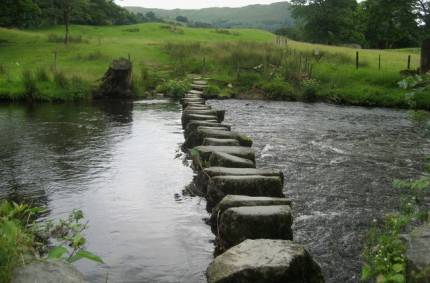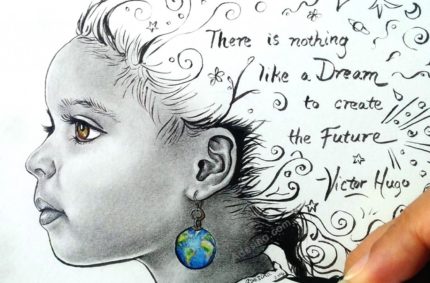Month 4: Drawing a Map
There’s a quote by Robina Courtin, a Buddhist nun, that I like very much. She says: “You’ve got to know exactly where you are. You’ve got to know how far you’ve come from and how far to go. Then you can relax, because you have a map. Even if it’s walking from here to Tasmania, if you have a map, and you look on your map, and you know where you are, even though it’s a way to go, you know where you are. And the mind can be peaceful.”
This is the idea here—to figure out one’s map and then relax into it. And then, even though it might be a long way to go, the mind can be peaceful.
Steppingstones as a Way to Examine Your Life
Ira Progoff, a student of Carl Jung, who developed an elaborate process of journaling for self-discovery, one that involved binders and dividers and multiple colors, used the term stepping stones to describe a way of looking back and examining one’s life. I’ve always found his term evocative. I see the stones on a path with spaces between them, the stones stretching back as well as forward. Our lives are a river of moments. The stones are those key moments—often ones we remember vividly—often ones where something of significance turned,...
A Research Study on the Health Benefits of Writing About Goals
In 2001, Laura King, one of the researchers in the field of writing and health, conducted a study in which she looked at what happened when college students wrote about something she calls “their best possible future self.” By this time, a large amount of data had already been collected on the benefits of writing to work through difficult past experiences. King became interested in exploring what other kinds of writing might be beneficial to health. Her study is one that I don’t think has been written about enough....


